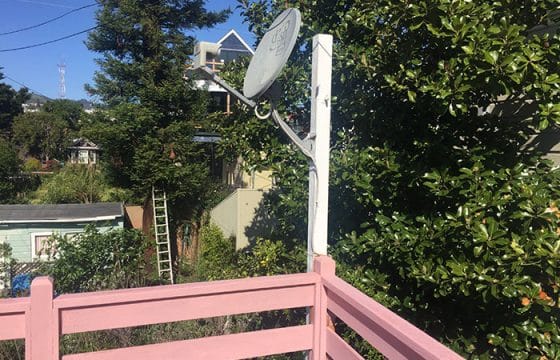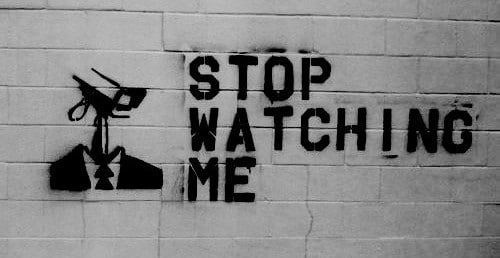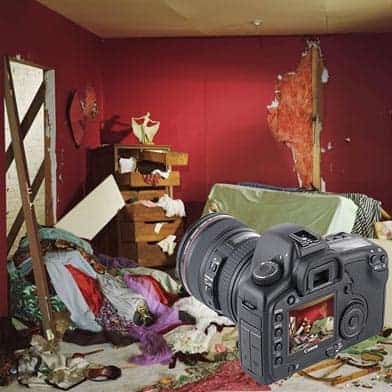
Can My Landlord Make Me Pay To Replace The Carpet?
Can My Landlord Make Me Pay To Replace The Carpet?
When we moved in, our landlord warned us that the carpet ‘easily stains’ so we must take our shoes off. We do but after two years of living there, the carpet is definitely worn down.
Now she claims that the carpet should not be so dirty & that our upstairs neighbor has the same carpet that is very clean. We also have had a few accidents which we know we are responsible for- a few burn marks & a nail polish stain. The landlord is claiming that because of how dirty the carpet is in addition to the marks, we will be responsible for replacing the entire apartment because she does not want ‘seams’!
If the carpet is thoroughly cleaned when we move out, and all that remain are the few marks we are responsible for, can she make us replace the entire carpeting?
Ah, carpets…one of the big three, along with hardwood floors and ovens. If all landlords are attracted to a dirty ovens like Sylvia Plath, they become vengeful Aladdins when they suspect that tenants have diminished the magic of the wall-to-wall.
Carpets and drapes – “useful life” rule
Ordinary wear and tear to carpets, drapes and other furnishings cannot be charged against a tenant’s security deposit. (Civil Code Section 1950.5(e).) Ordinary wear and tear includes simple wearing down of carpet and drapes because of normal use or aging, and includes moderate dirt or spotting. In contrast, large rips or indelible stains justify a deduction from the tenant’s security deposit for repairing the carpet or drapes, or replacing them if that is reasonably necessary.
One common method of calculating the deduction for replacement prorates the total cost of replacement so that the tenant pays only for the remaining useful life of the item that the tenant has damaged or destroyed.
The dispositive question one must ask is, “How old is the carpet?” That’s important because carpets don’t last forever.
How do you determine the approximate age of your carpet?
The landlord inadvertently tipped you off that the carpet would be a problem when you moved in. At that point, you should have casually asked the landlord when the carpet had been installed. Generally, tenants should ask this type of question before moving in and take comprehensive photos of a unit before they unload their furniture.
If you are planning to have the carpet professionally cleaned, you have another opportunity to get an estimate of the carpet’s age—ask the carpet cleaner. If you can, get them to sign a letter or declaration stating their opinion about the condition and age of the carpet. If the cleaner is reluctant, either find someone else who will attest to the carpet’s age or ask them to simply note it on the invoice—”Steam clean 50 year old shag carpet, with special raking of Acapulco Gold and Windowpane residue.
How can you calculate the useful life of carpets?
Landlords are allowed to deduct the annual depreciation of items like appliances and carpets from gross income for tax purposes.
IRS Tax Publication 527 provides information regarding expense deductions, including allowable depreciation schedules, for residential rental property. Table 2-1 on page 9 of the publication shows allowable depreciation of property used in rental activities. Using the general depreciation system carpets have a usable life of 5 years. Using the alternative depreciation system, carpets have a usable life of 9 years. (IRS Tax Publication 527, page 9, Table 2-1.) Most landlords use the general depreciation system.
For example, suppose a tenant has truly damaged a carpet beyond ordinary wear and tear (hard to prove), an eight-year-old carpet that had a life expectancy of five years would be worth nothing, zero, zip, nada. The landlord has to eat the replacement cost despite the damage beyond ordinary ware and tear.
Using the same example, with a life expectancy of nine years and if a replacement carpet of similar quality would cost $2,000, the landlord could properly charge only $222.22 for only one years’ worth of life (use) that would have remained if the tenant had not damaged the carpet.
In your case, we know that the carpet was not new when you moved in. Assuming that the carpet is three years old, and the small marks to which you refer do not constitute ordinary wear and tear (highly unlikely), you could be liable for 40% of the replacement cost of a similar carpet.
This isn’t legal advice, but I’ve repaired carpets myself. One can do things like carefully trimming off the burned top of the pile on the carpet. Or, cutting out a little piece of the carpet in a closet and gluing it in a small stained area that one has carefully removed like a hair plug. I’m talking small area here, like at most an half an inch square. Don’t try to replace the blood stains from a Goodfellas-style beat down.
Ask an expert. There are plenty of tricks to repair carpet that won’t involve a security deposit deduction.
Make sure you take photos when you move out. If the landlord attempts to deduct from your security deposit, go to the San Francisco Tenants Union to discuss how you can sue her for maximum damages.
Finally, ask yourself, “What kind of landlord would install carpets in a rental unit that easily stain except a Cheese Ball who charges her tenants to pay for replacement every time they move out?” A Cheese Ball who pockets the cost, doesn’t replace the carpets, and still deducts the depreciation from her taxes, that’s who.











 The Costa Hawkins Rent Housing Act, a bi-partisan law enacted in 1995 by the band of pandering griftocrats we call our state legislators, that eviscerated local rent control.
The Costa Hawkins Rent Housing Act, a bi-partisan law enacted in 1995 by the band of pandering griftocrats we call our state legislators, that eviscerated local rent control.